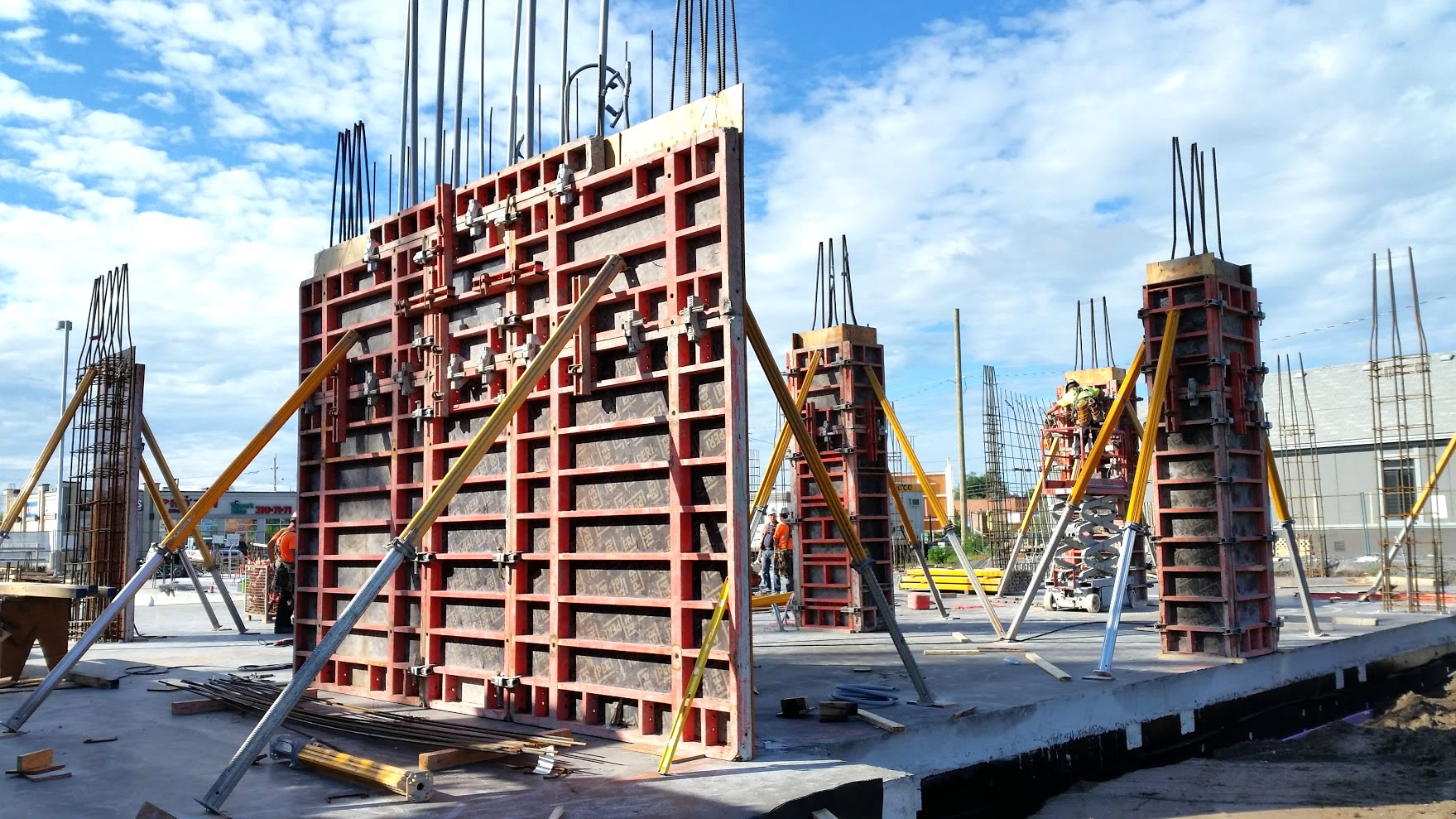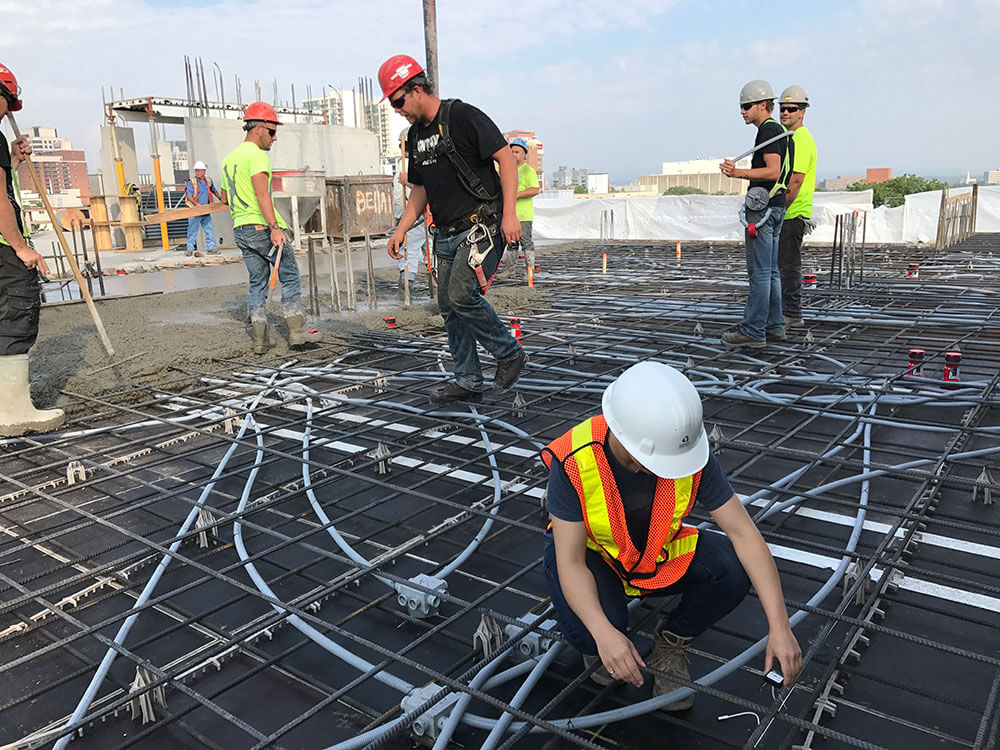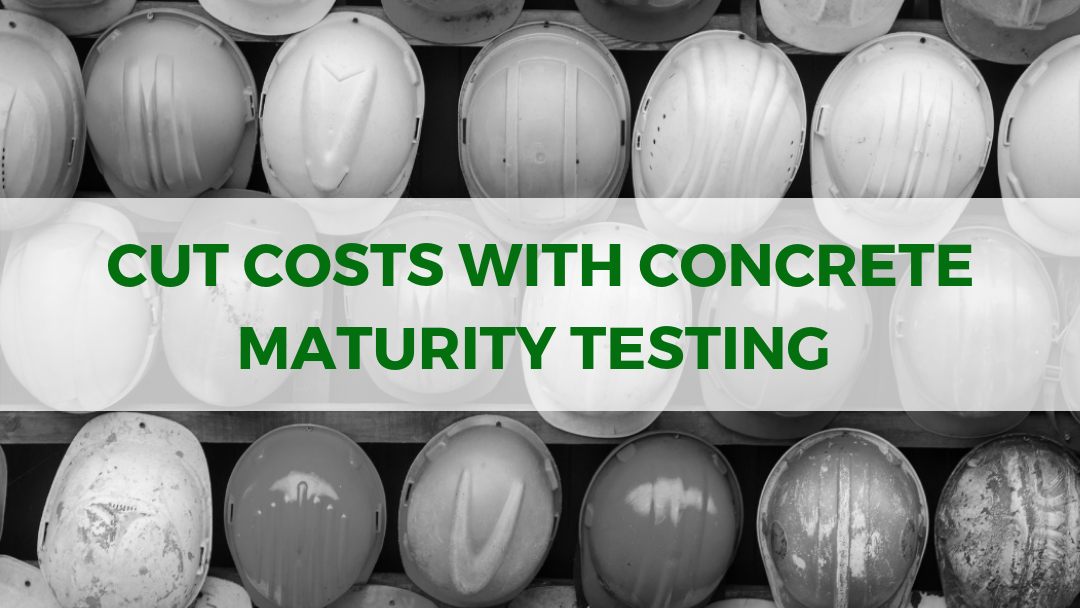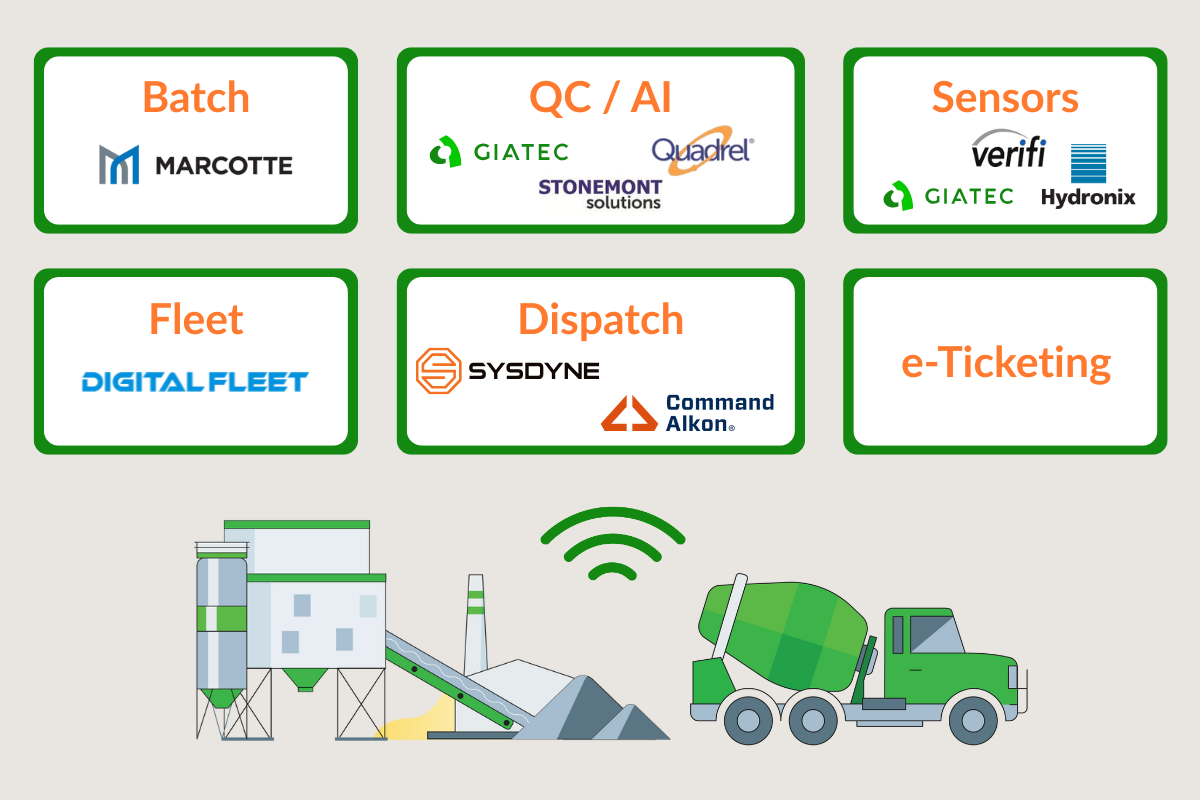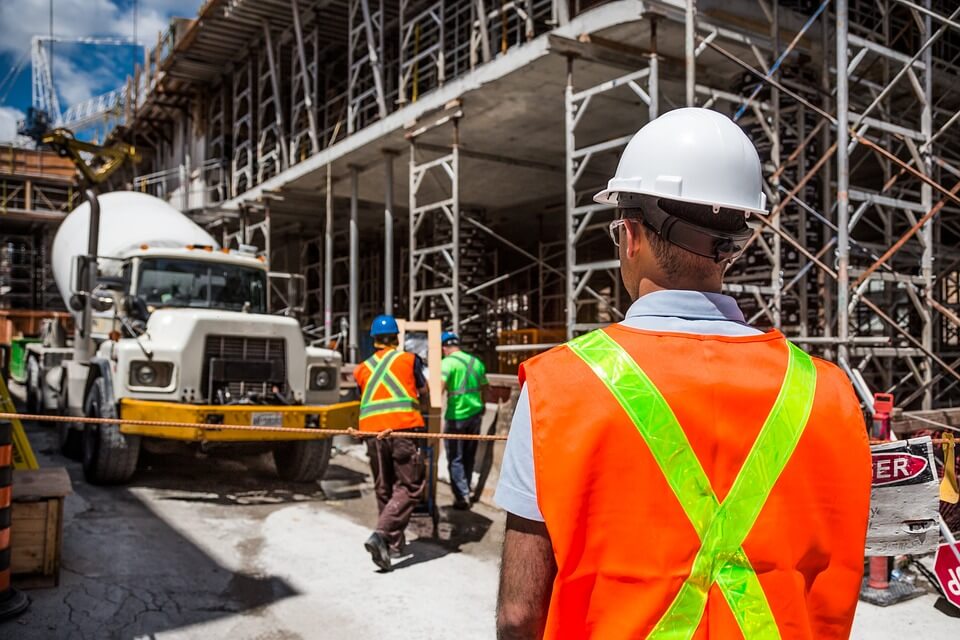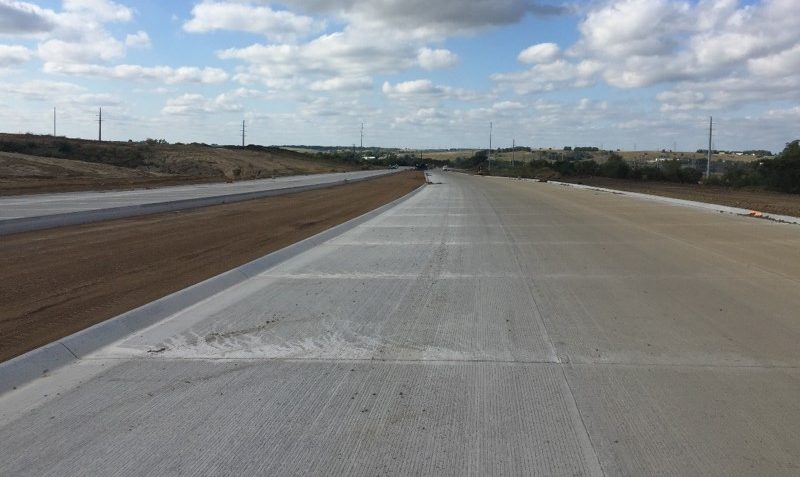When it comes to Smart Construction and Intelligent Building Operation, the Internet of Things (IoT) is a powerhouse that has revolutionized many aspects of the industry—including concrete installations and applications. Essentially, the IoT is a network of items that are embedded with sensors, electronics, actuators, and software that connects them together.
Explore 12 Futuristic Technology Trends Solving Concrete's Biggest Challenges.
This integration allows the connected devices to exchange information in the physical world remotely via computer-based systems, resulting in more efficient operations, reduced need for many human interventions and providing an array economic benefit. In fact, the benefits are so substantial that it is reported that more than 8.4 billion IoT devices were in use in 2017, and that number is expected to increase to 30 billion by 2020. So, without doubt, loT is transforming the construction and concrete industries today.
Powerful Data Collection in Construction Industries Using IoT
The Internet of Things can offer users complete lifecycle asset information through accurate data collection concerning various components of any integrated building. This allows end users to spot any potential performance issues, hone in on ways to improve performance, and extend their lifecycle. By aggregating performance data in real-time, operators can better understand the status of their structures anywhere around the world at any time.
Concrete Intelligence: Self-Monitoring Cement
Sensors that are integrated into composite materials with concrete implements or integrated devices that can store energy like batteries in turn provide valuable information for end-users. Utilizing 3-D technology, wires and sensors are incorporated during the construction phase into implements such as homes. One such use of this technology might be to monitor the concrete foundation of a home to catch any issues before they become apparent to the naked eye. This can also be done with roads, bridge beams, and other structures giving them the ability to monitor themselves. IoT integrations can measure concrete integrity, temperature, stability, and other parameters.
Remote Operation
With tools and equipment connected through the Internet, users and operators can manage and multiple functions remotely. Amid the concrete and construction industries, this ability can be invaluable when it comes to productivity and site safety. For example, if there are on-site hazards that could endanger equipment operators, information on the extents of the danger and how to approach the situation can be communicated to and provided by experienced management personnel from anywhere in the world. Quality checks can also be received remotely, and workers can observe these notations in the database, allowing them to improve the quality of their performance, and ensure that materials and equipment are up to par.
Equipment Maintenance Notifications
IoT technology can provide intelligent, precise analytical information concerning much of the equipment used in concrete operations. By integrating sensors onto equipment, they become ‘intelligent’ machines and can effortlessly keep track of the condition of equipment and help users adjust their maintenance plans accordingly. Today, many of the leaders in the equipment industry such as Komatsu and Caterpillar are already installing telematic sensors and software into their machinery, making connectivity extraordinarily simple.
Smart Resource Allocation
Staying on budget is of vital importance to most construction site managers and their backing investors, and properly allocating equipment and human resources is a big part of making sure that costs stay on track throughout any project. IoT technology keeps employees connected and informed about the status of construction, the condition of the equipment involved, and even the quality and temperature of the concrete being mixed.
This makes it easier for management and staff as a whole to minimize delays and more adequately estimate time frames as well as the amount of human resources that are necessary to meet project goals. Simply put, the Internet of Things assists tremendously with site planning and allows one to get the most out of every resource being utilized during the project.
Where is the Internet of Things Amid the Concrete Construction Industry Headed?
Clearly, the potential to utilize the Internet of Things to streamline construction projects as a whole is rather impressive already. With the number of users predicted to hit 30 billion very soon, it’s safe to say that the technology and its capabilities will only increase and improve site safety and project management substantially.




